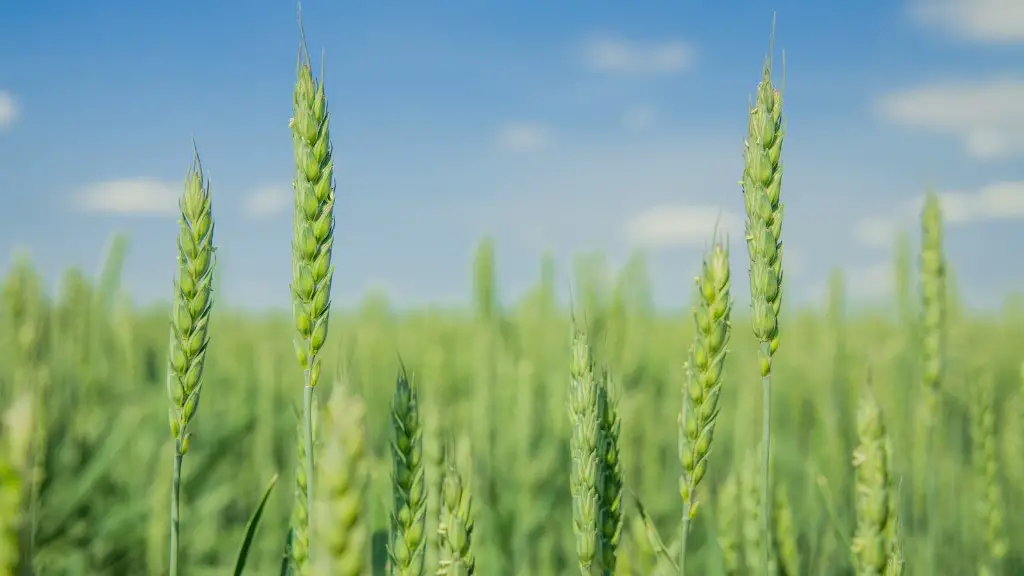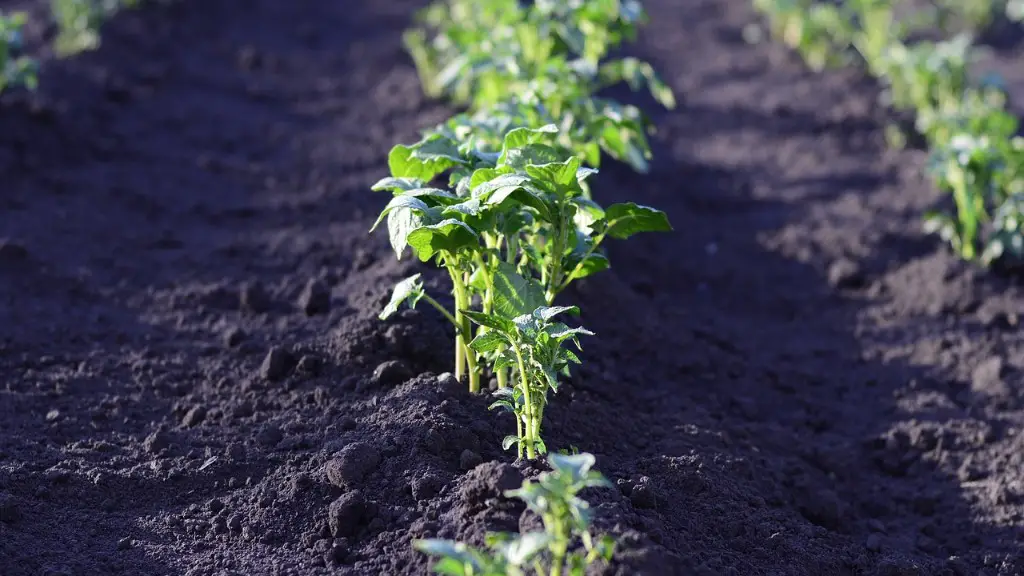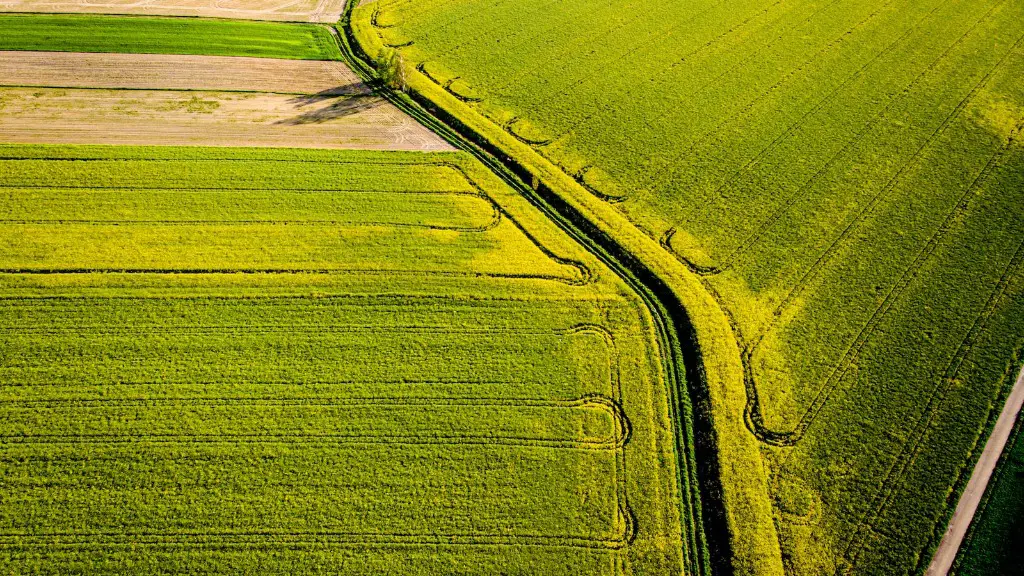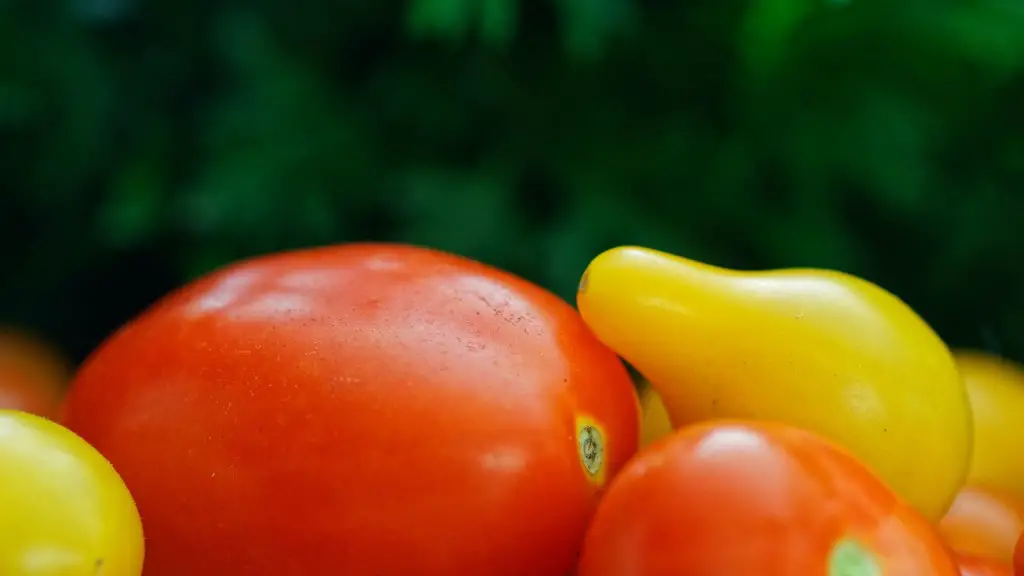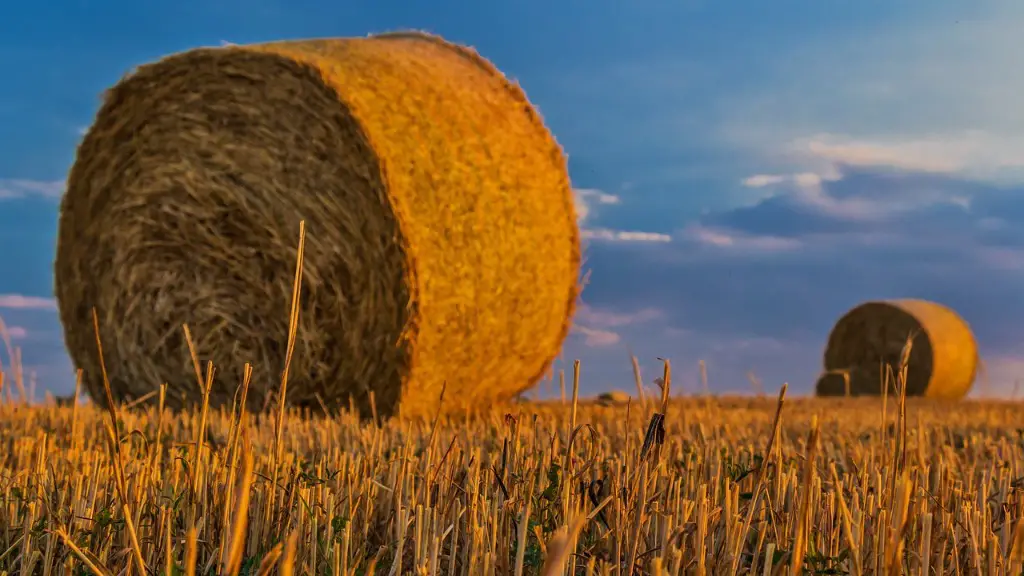Agriculture is a critical sector for poverty reduction and economic growth in developing countries. Over 70 percent of the world’s poor live in rural areas and most of them depend on agriculture for their livelihoods. Yet, the sector is often neglected in policymaking and investments.
There are many ways in which agriculture can reduce poverty. For example, increasing productivity and incomes for smallholder farmers can help them escape poverty traps and move out of subsistence farming. In addition, agriculture can create jobs and generate economic growth, which can have a ripple effect of reducing poverty.
While there is no silver bullet for reducing poverty through agriculture, investments in the sector are an important part of the puzzle. With the right policies and investments in place, agriculture has the potential to be a powerful tool for poverty reduction.
The role of agriculture in poverty reduction is well-documented. Over the past three decades, agriculture has been a key driver of poverty reduction, lifting millions of people out of poverty. In fact, agriculture is one of the most effective tools available to reduce poverty. By investing in agriculture, developing countries can provide their citizens with food security, improved nutrition, and increased incomes. Additionally, agriculture can create jobs and provide opportunities for economic growth. When smallholder farmers are able to produce more food, they are able to sell their surplus at market, which can lead to increased incomes and improved livelihoods. In addition to its direct impacts on poverty reduction, agriculture also has indirect impacts that contribute to economic growth and development. For example, agricultural productivity growth can lead to lower food prices, which benefit consumers and can stimulate economic activity.
Does agriculture reduce poverty?
According to an OECD report, one can attribute 52 percent of poverty reduction to growth in agriculture incomes. In addition, for a measure of 1 percent GNI growth, agriculture contributed the most to poverty reduction. This is because agricultural growth results in higher incomes for the poor, who are mostly employed in the sector. When agricultural incomes increase, so does consumption and investment, leading to higher incomes and more jobs.
There is no one silver bullet to addressing poverty, but education is one of the best solutions. Providing clean water, basic health care, and improved childhood nutrition are also key to empowering individuals and communities to break the cycle of poverty. Supporting environmental programs and reaching children in conflict zones are also important pieces of the puzzle.
How does agriculture improve the economy
Agriculture plays a vital role in the US economy, contributing to the overall gross domestic product (GDP) through farm production, forestry, fishing activities, textile mills and products, apparel and food and beverage sales, and service and manufacturing.
Indirectly, agriculture also boosts the economy by supporting other sectors, such as transportation and construction. For example, the farming of crops and livestock requires the use of vehicles and equipment, which in turn supports the manufacturing and transportation industries. In addition, agriculture provides raw materials for many industries, such as wood for furniture and construction, wool for clothing, and leather for shoes and accessories.
The agricultural sector also employs a significant number of people, both directly and indirectly. In 2017, the US Department of Agriculture estimated that there were over 2.6 million jobs in the agricultural sector, accounting for around 1.7% of total US employment. This includes jobs in farm production, forestry, fishing, and food and beverage manufacturing. In addition, the sector supports many jobs in other industries, such as transportation, construction, and retail.
The contribution of agriculture to the US economy is significant and extends beyond the farm gate. It is an important driver of economic growth and job creation, and supports many other
Quality education, access to healthcare, and economic security are essential for every child’s survival. Water and sanitation are also essential for every child’s survival. Child participation is essential for every child’s survival.
The agriculture sector plays a vital role in pro-poor growth and reducing poverty in both urban and rural areas. The sector employs a large number of the poor and provides a significant share of output and employment. The sector also provides a significant share of output and employment in rural areas, where poverty is concentrated. Agriculture-led growth often lowers poverty in both urban and rural areas.
Agriculture is important for a number of reasons. It is the main source of raw materials for many industries, it is important to international trade, it plays a big role in a nation’s revenue, it provides employment, it is crucial to a country’s development, it can help heal the environment, and it goes hand-in-hand with war.
How can we stop poverty in our society?
Nigeria must invest in girls’ education to end extreme poverty. Girls’ education is a human right and it is also an investment in the future. When girls are educated, they are more likely to be employed and earn a higher income. They are also more likely to have healthier children and are more likely to participate in decision-making.
Nigeria must also invest in health and wellbeing. Good health is essential for people to be able to lead productive lives and escape poverty. Investing in health will also improve educational outcomes and economic productivity.
Finally, Nigeria must expand economic opportunities and embrace technology. Technology can help connect people to markets and enable them to access services and information. It can also help create jobs and provide opportunities for entrepreneurship.
Farming is good for your health! Being a farmer is challenging and stimulating work! It provides a source of income in rural areas! Farm work helps develop younger generations! Farming can help the environment thrive!
What are 5 important of agriculture
The importance of agriculture has been widely discussed and debated over the years. There are a number of reasons why agriculture is important, and these reasons can be divided into three main categories: economic, social, and environmental.
The economic importance of agriculture is clear. Agriculture is the main source of livelihood for a huge proportion of the world’s population. It is also the primary source of food and fibre for the majority of people. In addition, agriculture provides raw materials for a range of industries, such as textile and paper.
The social importance of agriculture is also significant. Agriculture plays a vital role in social cohesion and integration. In many societies, agriculture is the main source of employment and income, which means that it plays a key role in alleviating poverty. In addition, agriculture can be a source of social pride and identity.
The environmental importance of agriculture is also significant. Agriculture is a major land use, and as such, it has a huge impact on the environment. Agriculture can cause deforestation, soil erosion, and pollution. In addition, agriculture is a major source of greenhouse gases.
It is estimated that pasture and cropland occupy around 50 percent of the Earth’s habitable land. These areas provide habitat and food for a multitude of species, and when agricultural operations are sustainably managed, they can help preserve and restore critical habitats, protect watersheds, and improve soil health and water quality.
What are the 3 simple rules to prevent poverty?
There are a few key things that you can do in order to avoid poverty. Firstly, graduate from high school. This will give you a better chance of getting a good job. Secondly, wait to get married until after 21 and do not have children until after you are married. This will help you to focus on your career and not have to worry about supporting a family. Finally, have a full-time job. This will give you a steady income that can help you to avoid poverty.
Various schemes have been devised by the government to eradicate poverty and its various ill-effects from the society. Some of these schemes are specifically designed to provide employment to the poor, while others aim at accelerating economic growth and human resource development in the country. Agricultural growth, development of infrastructure and access to assets and credit are some of the important factors that contribute to poverty alleviation. The public distribution system is also an important safety net for the poor and needy people in the society.
How can we reduce poverty in rural areas
There are a few key ways to increase productivity of small-scale farms and improve their access to markets:
1. Promote more efficient value chains. This can be done by streamlining processes and improving coordination between different actors in the chain.
2. Create jobs, especially for the youth. This will help to reduce unemployment and underemployment in rural areas.
3. Encourage economic diversification. This can be done by investing in people and fostering skills that can be used in agricultural and non-agricultural activities.
4. Improve access to financial services. This will help small-scale farmers to invest in productivity-enhancing technologies and inputs.
5. Improve access to markets. This can be done by developing infrastructure and implementing policies that facilitate market access.
There are many causes of poverty around the world, but some of the most common include inadequate access to clean water and nutritious food, little or no access to livelihoods or jobs, conflict, inequality, poor education, climate change, and lack of infrastructure.
What is the main purpose of agriculture?
Agriculture is an important part of the world economy and is critical for the sustenance of human life. It involves the cultivation of the land to grow crops and raise livestock. Agriculture also includes the preparation of plant and animal products for people to use, and the distribution of these products to markets.
The agricultural sector provides a significant portion of the world’s food and fabrics. It is a major source of employment and income for many people, particularly in developing countries. Agriculture is also a key sector in terms of environmental sustainability, as it plays a vital role in the management of natural resources such as water, soil, and forests.
Agriculture is the most essential element of the global food supply. It provides food for both people and animals. Agriculture is also the source of many other products that we use in our daily lives, such as clothes, paper, and fuel.
What are the positive impacts of agriculture on the environment
Agriculture can have a positive impact on the environment by reducing air pollution and providing a resource-rich habitat to certain wild species. This can help to improve the quality of the air we breathe and the water we drink, and it can also provide a home for wildlife that may otherwise be lost.
Poverty is a vicious cycle that can be difficult to break out of. One of the key ways to reduce poverty is to increase the productivity of the poor. This can be done by providing more employment opportunities and investing in public and private sectors to generate employment. By doing so, the poor can have more money to spend on basic needs and potentially break out of the cycle of poverty.
Conclusion
Agriculture can reduce poverty by providing an essential source of income and food security for rural households. In many developing countries, small-scale farmers and agricultural workers make up a large proportion of the poor. Raising productivity and incomes in the agricultural sector is therefore critical to reducing poverty. Improved agricultural productivity can be achieved through better access to inputs, technology and extension services; more equitable land tenure arrangements; and targeted policies and investments. In addition, agricultural growth generates positive spillovers to other sectors of the economy, which can create jobs and reduce poverty.
Small-scale agriculture provides a way for families to earn a reliable income and break out of the cycle of poverty. With proper support from the government and international organizations, agriculture can play a significant role in reducing poverty levels around the world.
